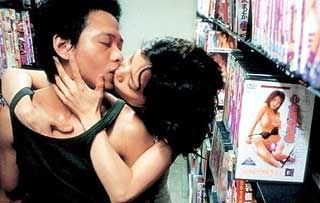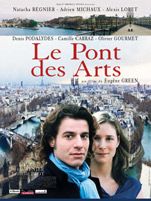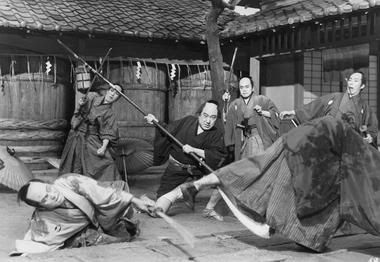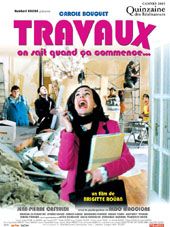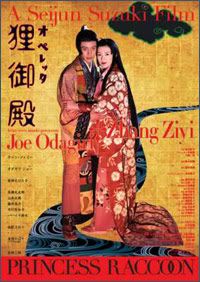Round two.
Ding ding
A Bloody Spear at Mount FujiBack to Uchida Tomu, and this time a samurai flick. A road movie even, as a samurai lord and his two retainers make their way to Tokyo to deliver a teacup. Yep, a teacup. That you only see once. Briefly. This so-called cinematic masterpiece focusses on the experience of the samurai's lancer, played by the self-same actor who emotionally portrayed the birthmarked hero in
Yoshiwara: The Pleasure Quarter. We also get to watch the enthralling escapades of a bunch of people we initially met on a ferry: amongst them a travelling player and her young child—a daughter who offers one of the most enthralling interpretations of the renowned 'slave dance', accompanied by koto; a reticent old peasant farmer selling his beautiful yet innocent daughter to a slave-trader, a nasty and deceitful thief and a comedy blind priest. Brilliant!
Well, kinda. A black and white genre pic. You could almost call it a buddy movie. A samurai film without violence (wha...?) but peppered with Ben-Stiller-type eeeww jokes. It was packed full of messages: all people are equal; violence is vanity; alcohol is evil. It sure moved at a clip compared to all the flicks I'd seen previously, and the sidekick kid stole the show.
Housewarming (Traveaux)A French comedy in the tradition of
Les Fugitifs and
The Dinner Game, this one concerning a beautiful, lefty, dancing lawyer, a handful of illegal imigrants and the nightmare that is renovation. Yes, a high-kicking, dancing lawyer.
It's amazing the difference in crowd at these Festy screenings. For
Saraband it was all grey-haired, serious types; for the Japanese ones it's nerdy-looking fan-boys and fan-girls; for the French comedy, it was all women in coats, mittens optional. And oh, it's fun. A light-weight laugh if ever there was one—and well worth it. I was a little peeved that ony the French was subtitled—and there was a fair bit of Spanish being spoken by said Columbianos. And [spoiler] the place looked better before the renovations than it after them.
Princess RaccoonLegend has it that if an human and a
tanuki fall in love, all hell will break loose.
Now,a modern film... but a Japanese comic opera? From esteemed director Sejun Suzuki—certainly the most arty of art films I've seen recently. It's very much a stage-y film, very much an opera: most of the action takes place on a set with a rousing chorus, complete with the comic characters you would expect from an Italian opera. Starring Zhang Zi Yi, you can't really go wrong—I mean there's one of the hottest women in the world up there, even if she is heading towards over-exposure. Yet, still, it ran for too long; it was slow, slow, slow.
The Mad Fox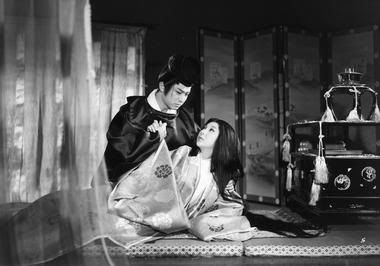
The third in my Uchida Tomu homage, this film was strikingly similar to the aforementioned Princess Raccoon. To the point where I'm pretty damn sure that it was the inspiration for Suzuki's enthralling 'lyrical tale'. This one is about a man falling in love with a fox—the other of Japan's two mythical, mystical shape-changing animals. The fox, however, is wicked, while the raccoon is jolly. Whatever. This 1962 technicolour number, considered Uchida Tomu's best by someone, somewhere, starts with a simple court-intrigue plot, the murder of the royal astronomer and the jockeying for succession of our hero and the Lady MacBeth-esque widow's favoured replacement. Which all ends in disaster about halfway through the film with the burning of the sets. And instead we switch to this weird-arse fox love story. Trippy weird. Too weird. Complete with rotating stages, animation, paper butterflies and fire-lighter blocks on wires, and a doll wrapped as a baby. Oh, and no sign of my friend the samurai lancer/pock-marked rural silk mogul.
So the upshot of all this Uchida Tomu business is that, frankly, the fellow rightly pales into insignificance behind legendary names like Yasujiro Ozu, Akira Kurosawa and Kenji Mizoguchi. Watch Tokyo Story. You won't need to see another film ever again.
And so a rating for these four?
- Traveaux
- A Bloody Spear at Mount Fuji
- Princess Raccoon
- The Mad Fox


